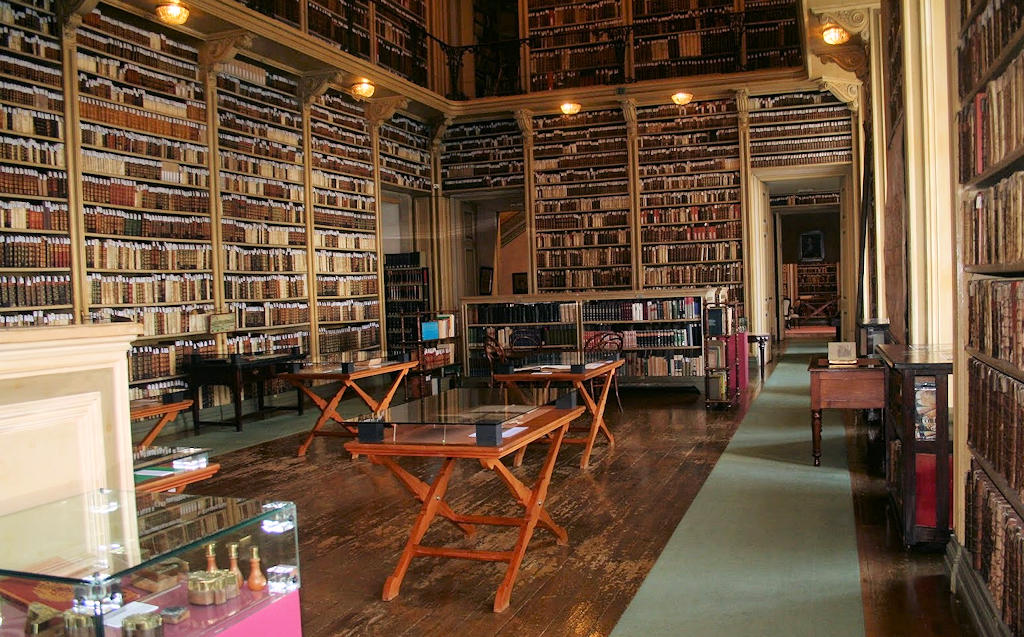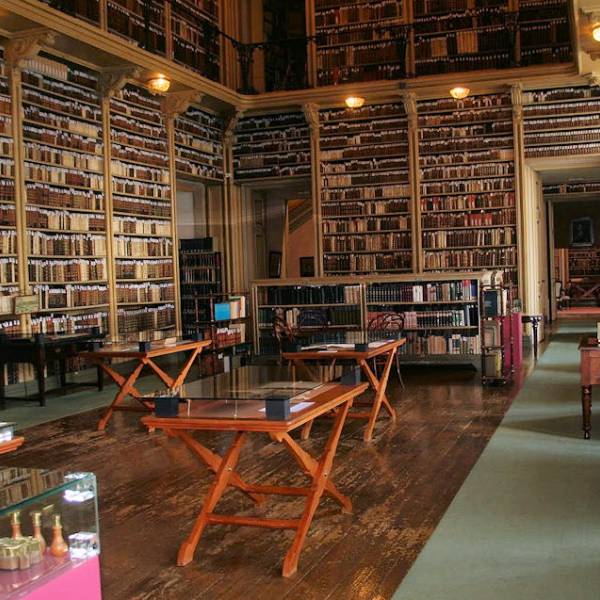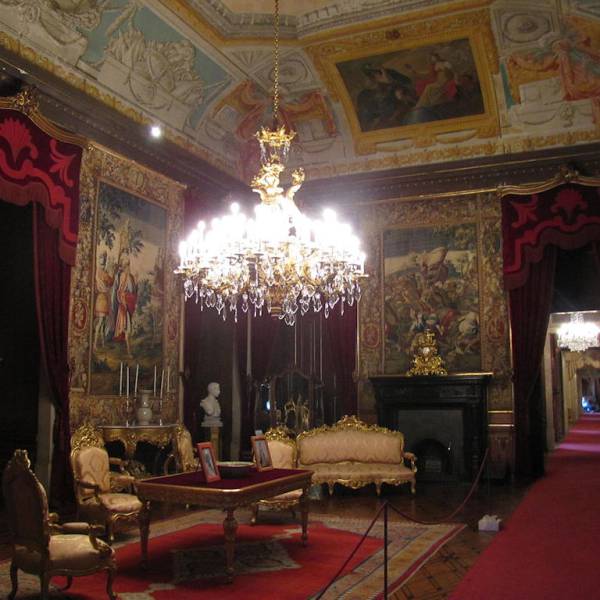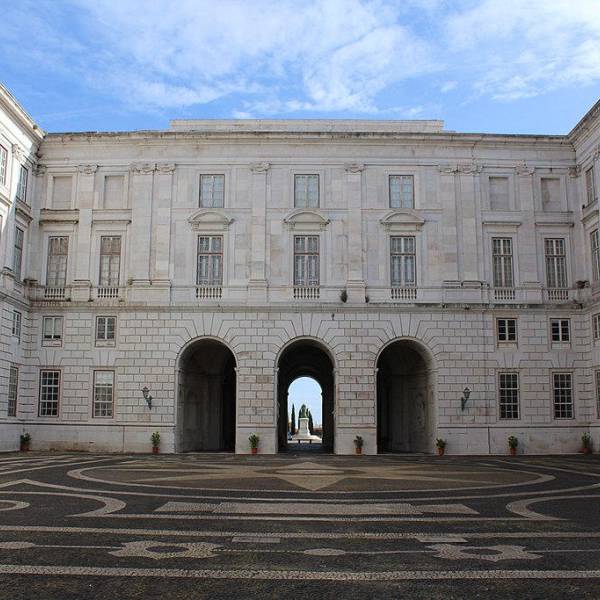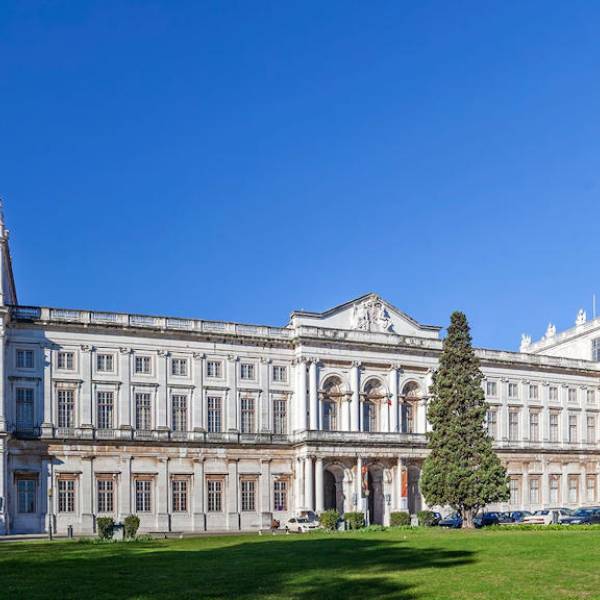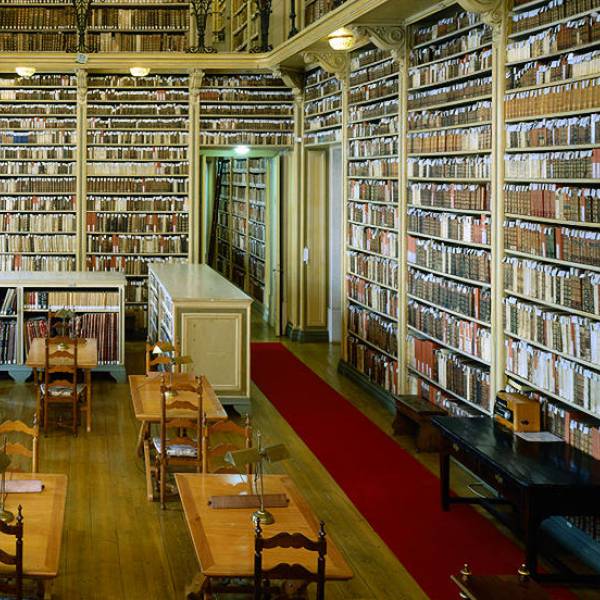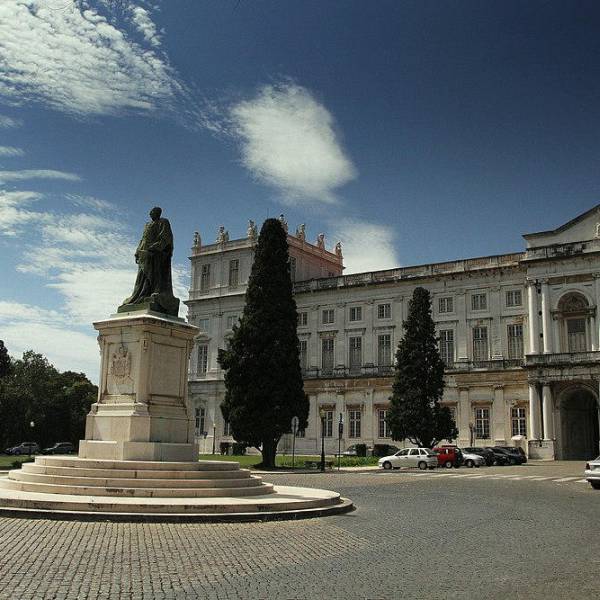During the turbulent era of the French invasions, the library faced further upheaval. In 1811, in a bid to protect its precious contents, the library was transferred to Rio de Janeiro, where it formed the nucleus of what would become the present-day National Library. It was not until 1821, following Portugal's independence from French rule, that a significant portion of the library's manuscripts, along with the libraries of the Society of Jesus, the Oratory Congregation, and the Necessidades Palace (Palácio das Necessidades), were repatriated.
In 1880, Biblioteca Nacional da Ajuda found its permanent home within the grandeur of the Ajuda Palace. Located in its own wing, the library is a magnificent architectural marvel, perfectly suited to house its vast collection. Visitors are captivated by the grandeur of the library's three public rooms, which showcase the library's most ancient and prized works. These rooms boast soaring ceilings adorned with stunning frescoes by José Pereira Júnior, creating an atmosphere that is both awe-inspiring and serene.
The Ajuda Library boasts an extensive and invaluable collection, spanning over three kilometers of shelves and encompassing approximately 150,000 manuscripts and printed works. Among its holdings are unique and extraordinary pieces that hold significant historical and artistic value. One such gem is the Cancioneiro da Ajuda, a medieval songbook that offers a captivating glimpse into the musical traditions of the past. Another notable work is the Livro de Traças de Carpintaria, a meticulously illustrated architectural treatise that sheds light on the craftsmanship and construction techniques of ancient Lisbon. Francisco de Holanda's "Da fabrica que falece a cidade de Lisboa", a visionary treatise on urban planning, further enriches the collection.
The Manuscript Collection at the Ajuda Library is a veritable treasure trove, with 2,512 codices and approximately 33,000 loose documents ranging from the 13th to the 20th century. Within this collection, visitors can explore illuminated manuscripts, navigational charts, historical and literary miscellanies, as well as an impressive array of chronicles, nobility records, and genealogies spanning several centuries. Of particular importance are the codices of the Symmicta Lusitanica and the Jesuit codices from Asia, which provide invaluable insights into the history of the East in the 18th century.
The Music Manuscript Collection is a crowning jewel of Biblioteca Nacional da Ajuda, comprising 2,950 codices and 10,200 loose sheets. Considered one of the most valuable collections of its kind in Portugal, it houses a remarkable assortment of chamber music and opera from the 18th and 19th centuries. Scholars and music enthusiasts alike are captivated by the richness and diversity of these musical treasures, which offer a glimpse into the vibrant cultural tapestry of the time.
Lisbon.vip Recommends
Beyond its literary treasures, the Ajuda Library preserves an extensive collection of cartography, iconography, and photography. With approximately 2,500 items in each category, it showcases an array of maps, engravings, drawings, and photographs spanning different historical periods. Particularly noteworthy is the photographic documentation from the 19th and early 20th centuries, capturing moments frozen in time and offering a window into Portugal's past.
To complement its extraordinary collections, the Ajuda Library hosts various exhibitions, lectures, and cultural events, inviting visitors to delve deeper into the wealth of knowledge it holds. Scholars, researchers, and avid readers flock to this esteemed institution, drawn by its rich historical legacy and the opportunity to explore the corridors of wisdom within its walls.
The Ajuda Library stands not only as a testament to Portugal's cultural and intellectual heritage but also as a beacon of knowledge, inviting visitors to embark on a captivating journey through the annals of history. It serves as a living testament to the importance of preserving and celebrating the written word, ensuring that future generations can continue to unravel the secrets and treasures held within its esteemed collection.
Map View


